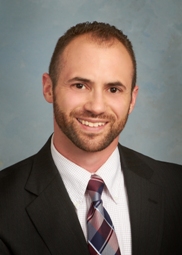Beck Fineman is a partner in the firm. He litigates cases on behalf of the firm’s corporate, governmental and individual clients, with a focus on labor and employment, railroad, professional negligence and personal injury cases. Beck has tried high exposure cases to verdict and has tried cases in federal and state courts in both Connecticut and New York, as well as in the federal administrative forum. He has briefed and argued six appeals to the United States Court of Appeals for the Second and Eleventh Circuits. Beck also has been an invited presenter at annual and special litigation meetings of the National Association of Railroad Trial Counsel, where he has shared his experience in trying the first cases arising under a new provision of the Federal Rail Safety Act.
Beck received the Connecticut Defense Lawyers Association’s “Rising Stars” award in 2017. He has been selected for inclusion in Connecticut Super Lawyers® each year since 2013 and was named one of the Connecticut Law Tribune’s “New Leader in the Law” in 2013.
Beck is as dedicated to his communities as he is to litigation. In 2012, he founded RRD’s Volunteer Corps, through which he leads the firm’s outreach to individuals and families in need throughout Fairfield County. Among other endeavors, the RRD Volunteer Corps has planted, and then expanded, a vegetable garden at a residential home for boys in the care of Department of Children and Families; prepared and served meals at shelters; volunteered with the Stamford-based DOMUS organization’s “Holiday Mall” event providing gifts to families in need; and, contributed and sorted clothing donations for Darien-based Person-to-Person and for Bridgeport’s LifeBridge Community Services. These efforts have resulted in lasting relationships with these organizations, and with others throughout Connecticut.
Beck serves as the chair of the firm’s Diversity and Inclusion Committee.
Beck also is a member of the Board of Directors for the Family Equality Council, a non-profit organization working to advance legal and lived equality for LGBTQ families, by creating community connections and supporting policy changes. Beck also serves on the Consumer Advisory Board of Anchor Health Initiative, which offers medical and behavioral health care services to everyone, with a particular focus on the needs of the LGBTQ community. He is the Treasurer of the Connecticut Bar Association’s LGBT Section and was chosen to sit on the Connecticut Defense Lawyers Association Board of Directors. Additionally, Beck has been selected as a “Knight of the Roundtables” for the Connecticut Bar Foundation, a non-profit organization of nominated lawyers, judges and teachers of law, dedicated to promoting equal access to justice in Connecticut. The Roundtables, organized and moderated by the Knights, provide Fellows an opportunity to examine timely issues involving the practice of law.
Prior to embarking on his legal career, Beck graduated Smith College, magna cum laude. He then worked as a legal assistant at Covington & Burling in Washington, D.C., before earning his juris doctorate from the University of Maryland School of Law. There, he served as a staff editor for the Journal of Race, Religion, Gender & Class, was a member of the executive board of the Moot Court Board, was selected to join the Phi Delta Phi scholastic fraternity, and received the James H. Rosner award for advocacy. Following law school, Beck served as a Legal Research Clerk to the Judges of the Superior Court of Connecticut. He joined RRD in 2007.


